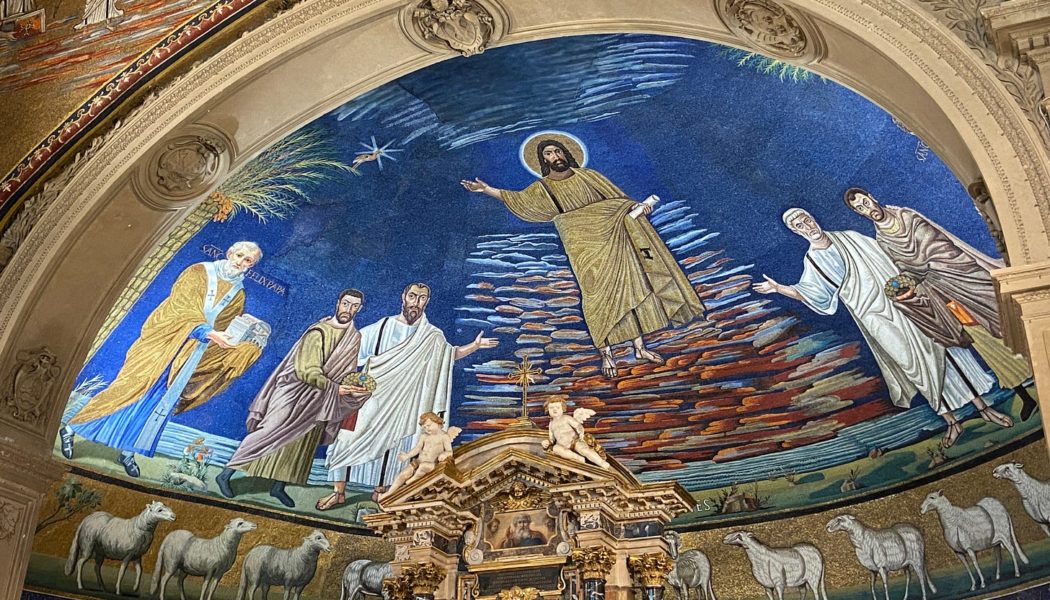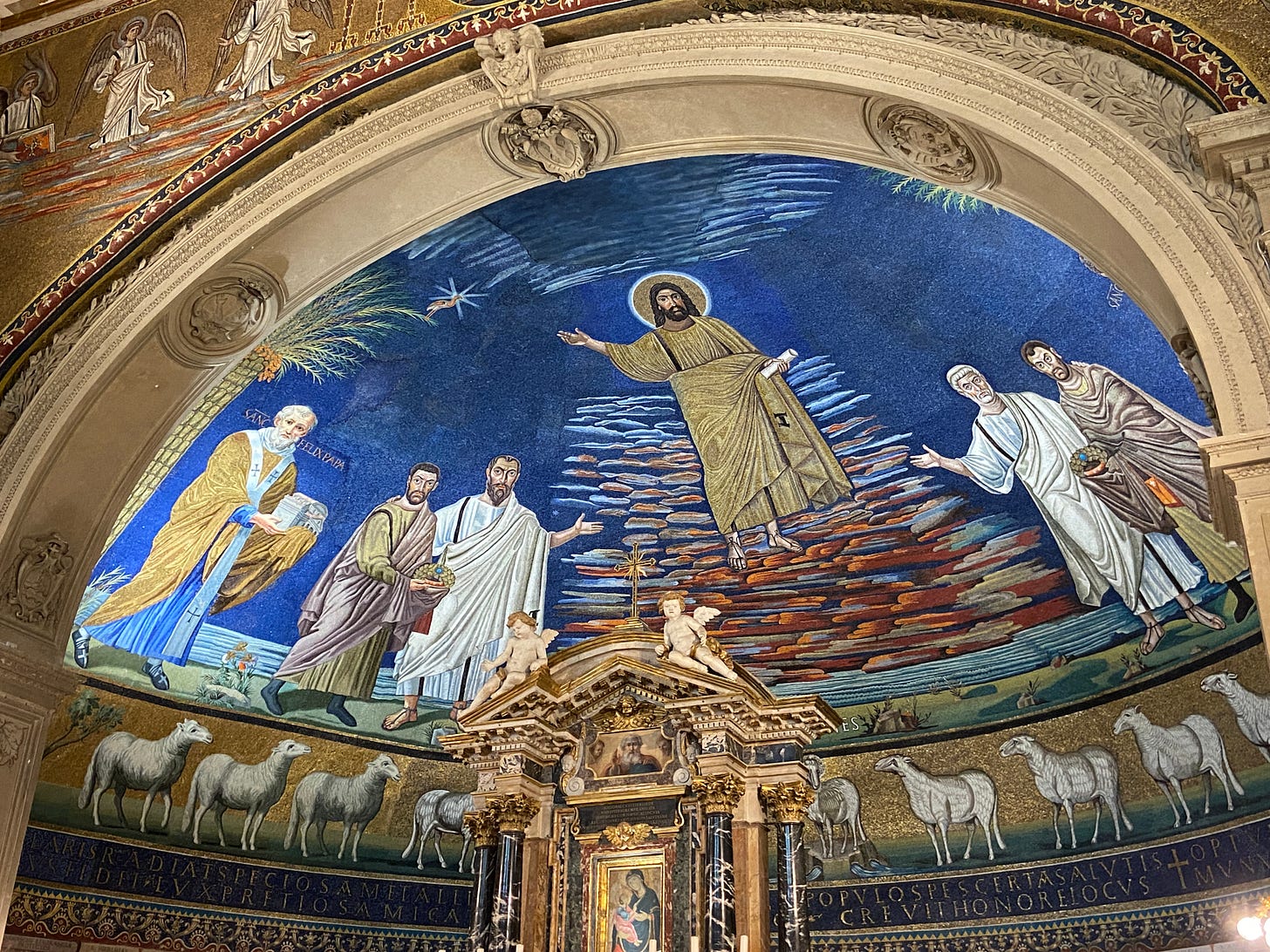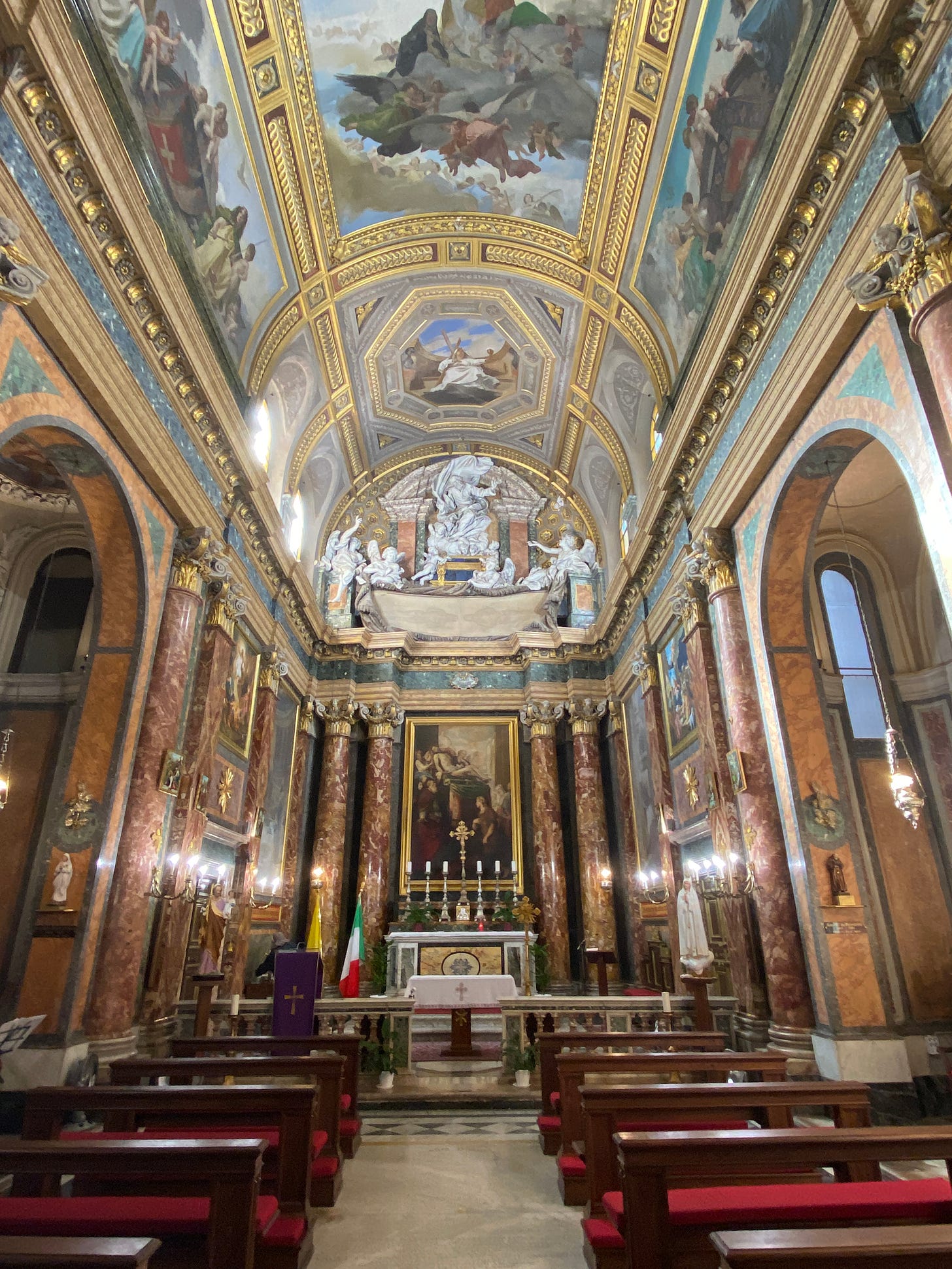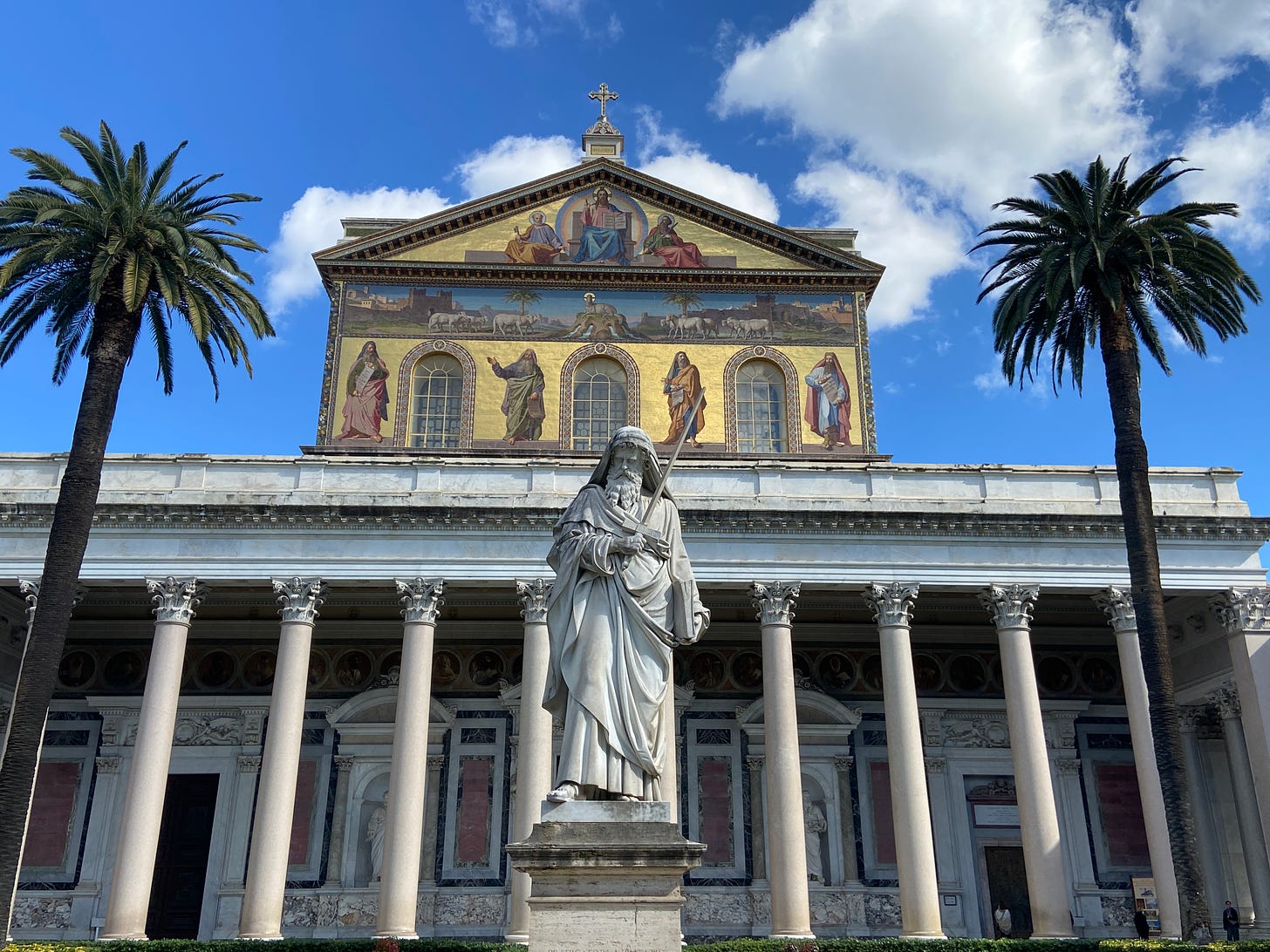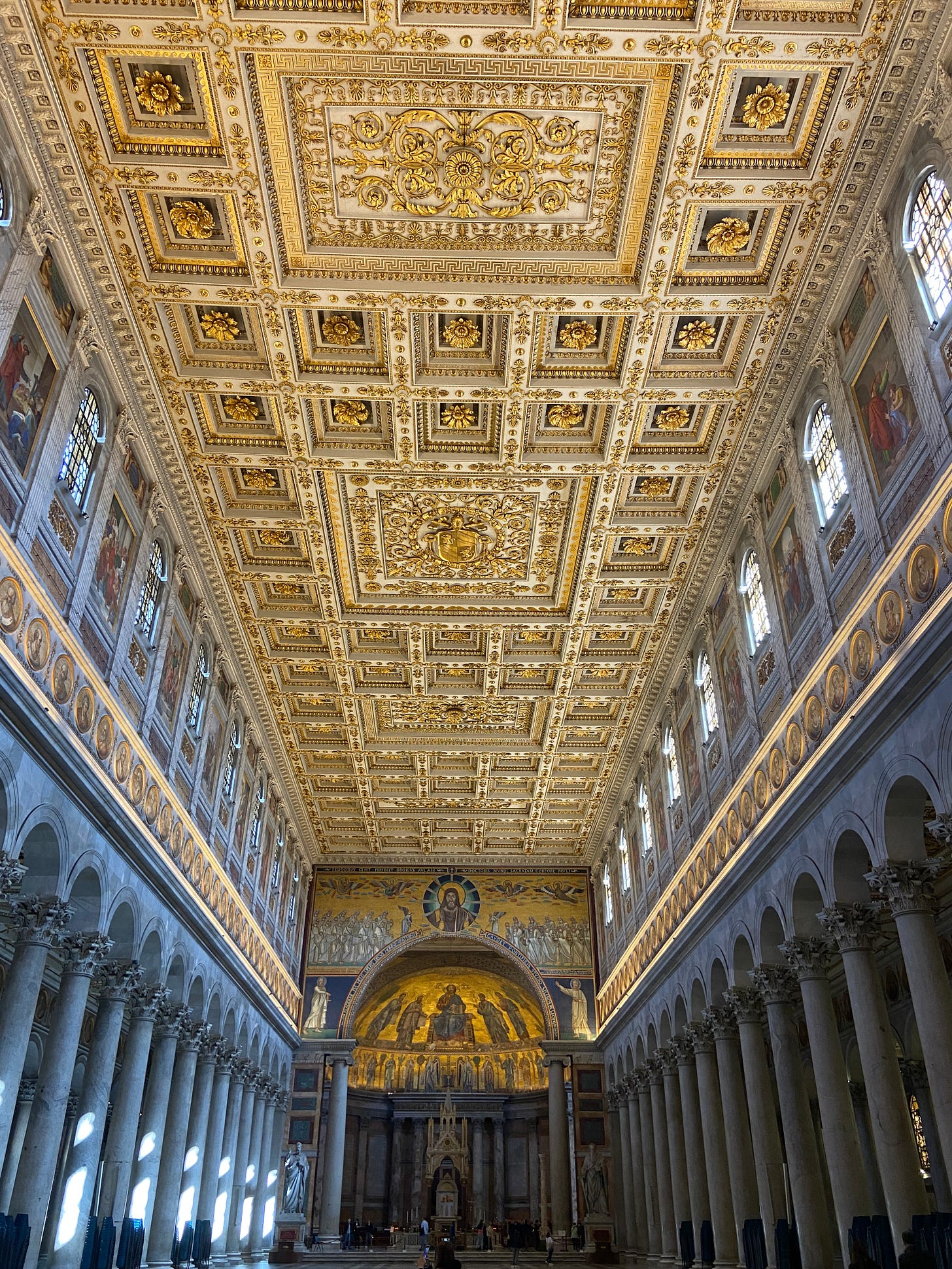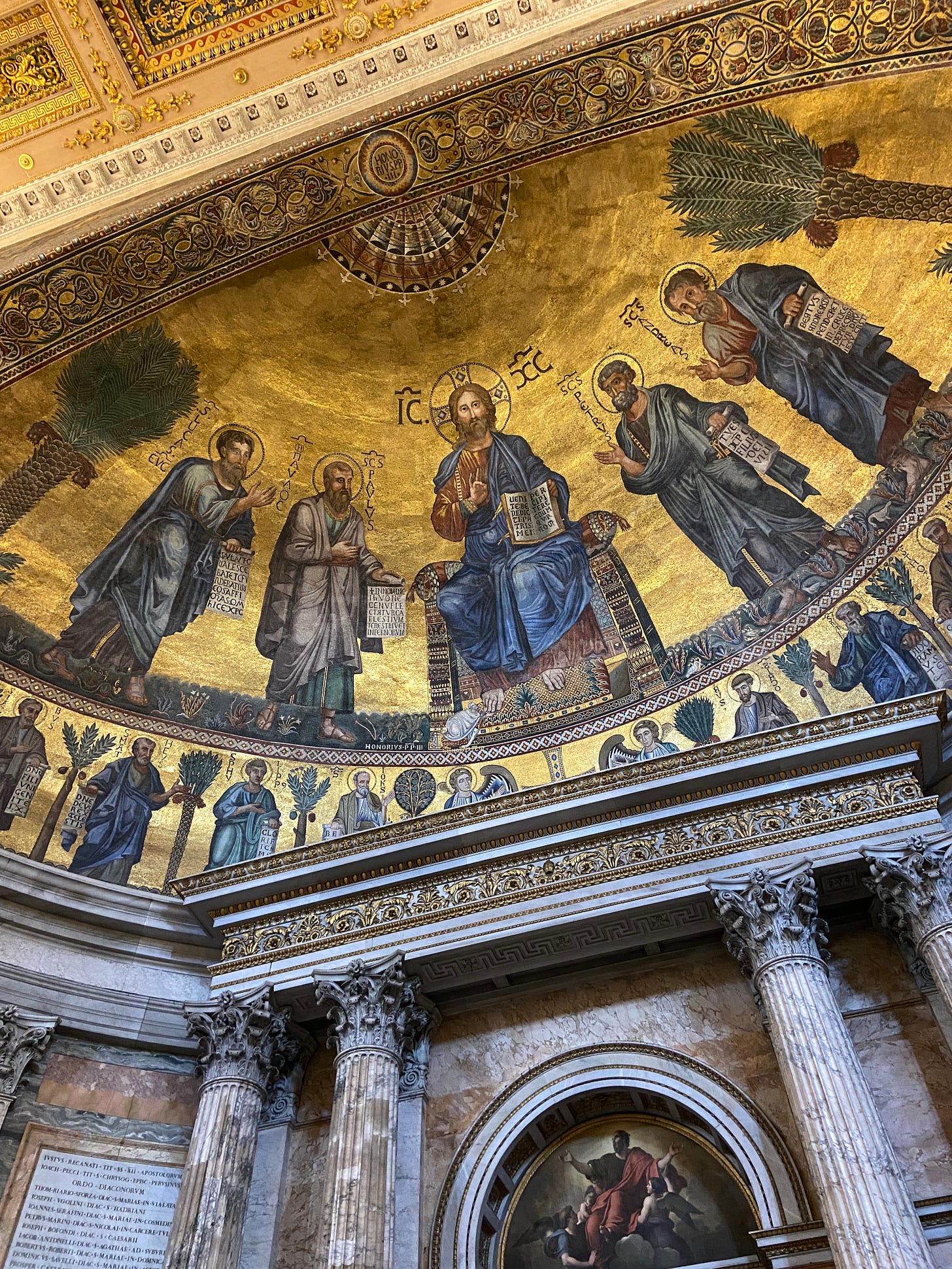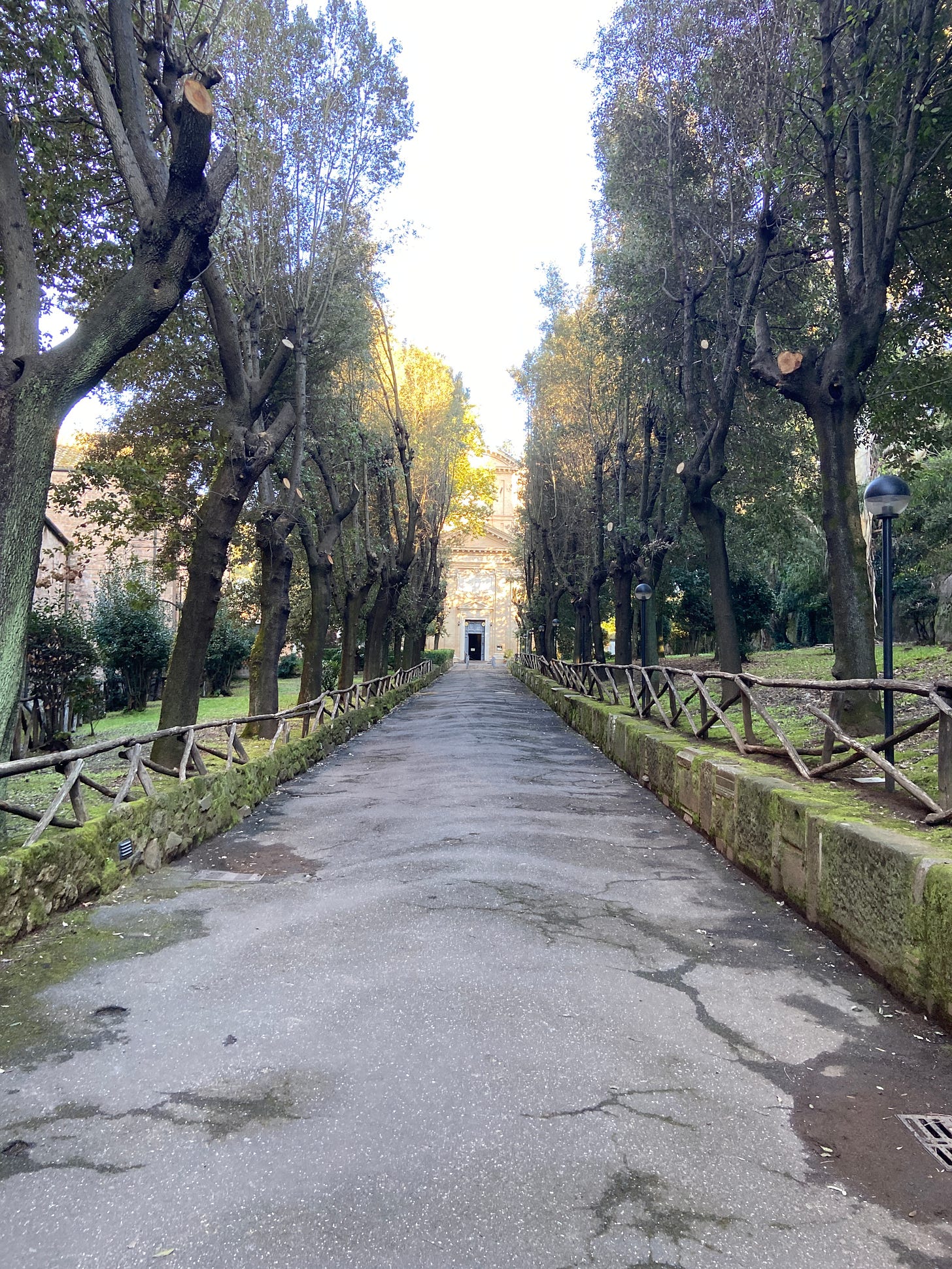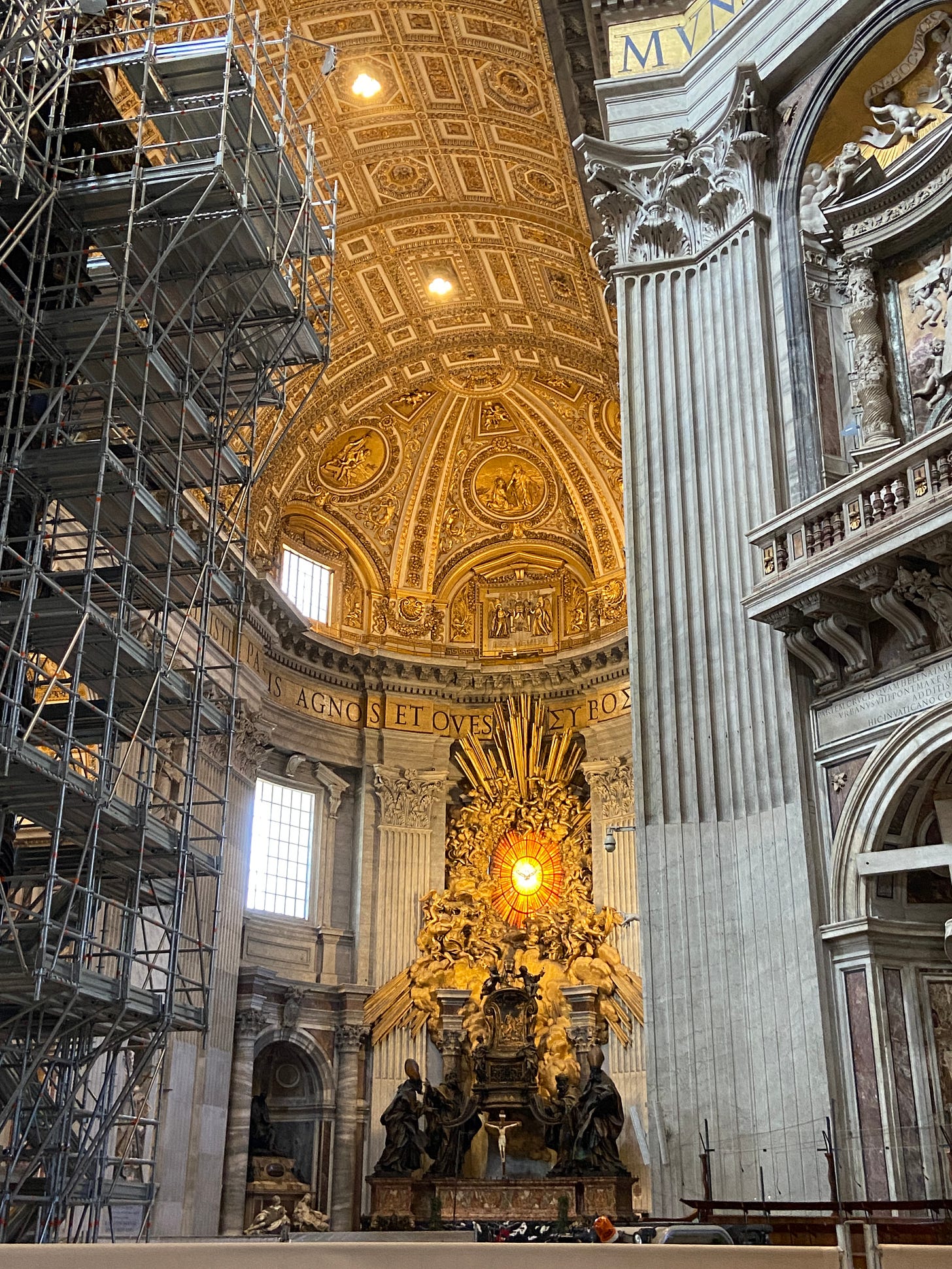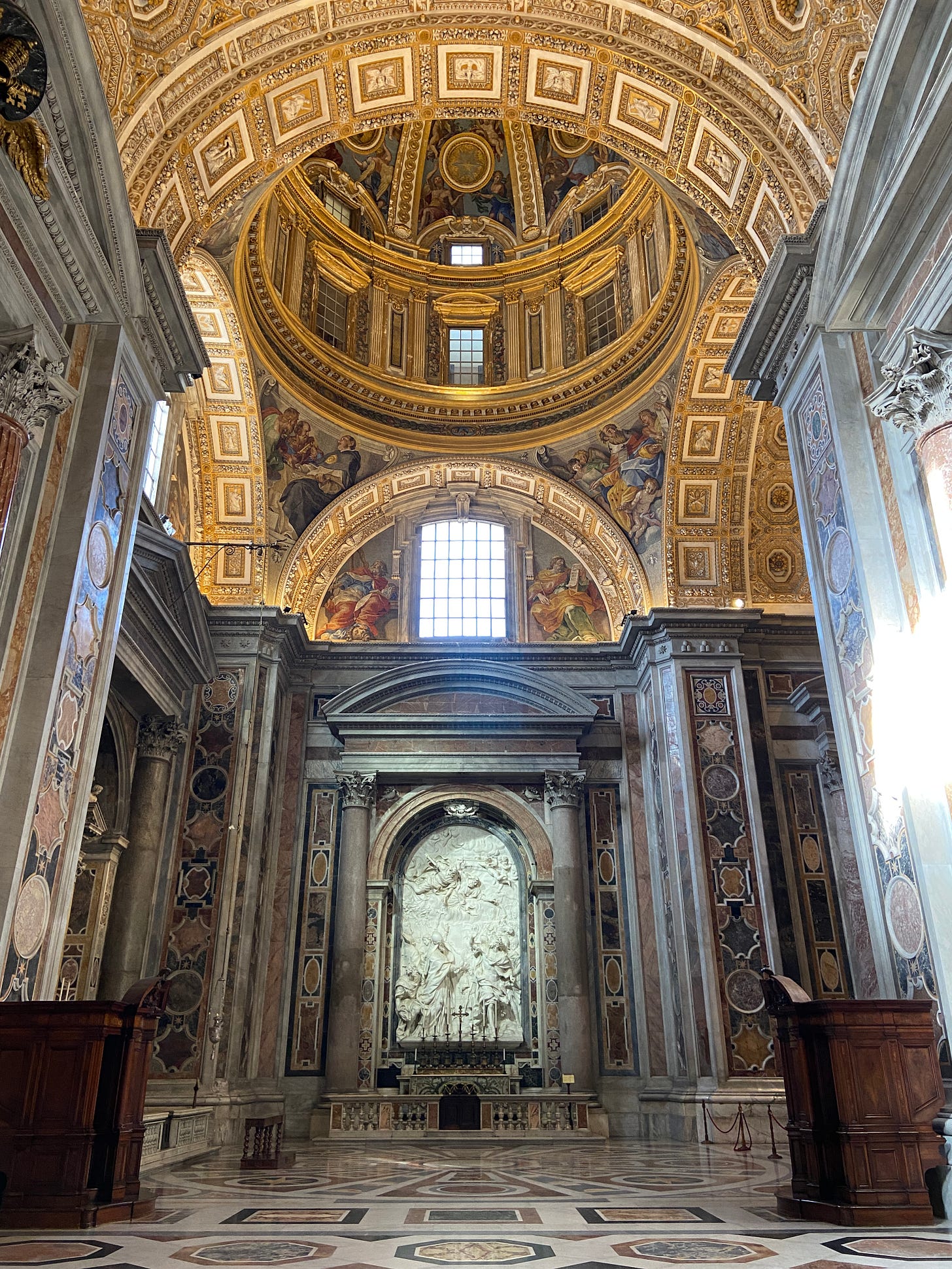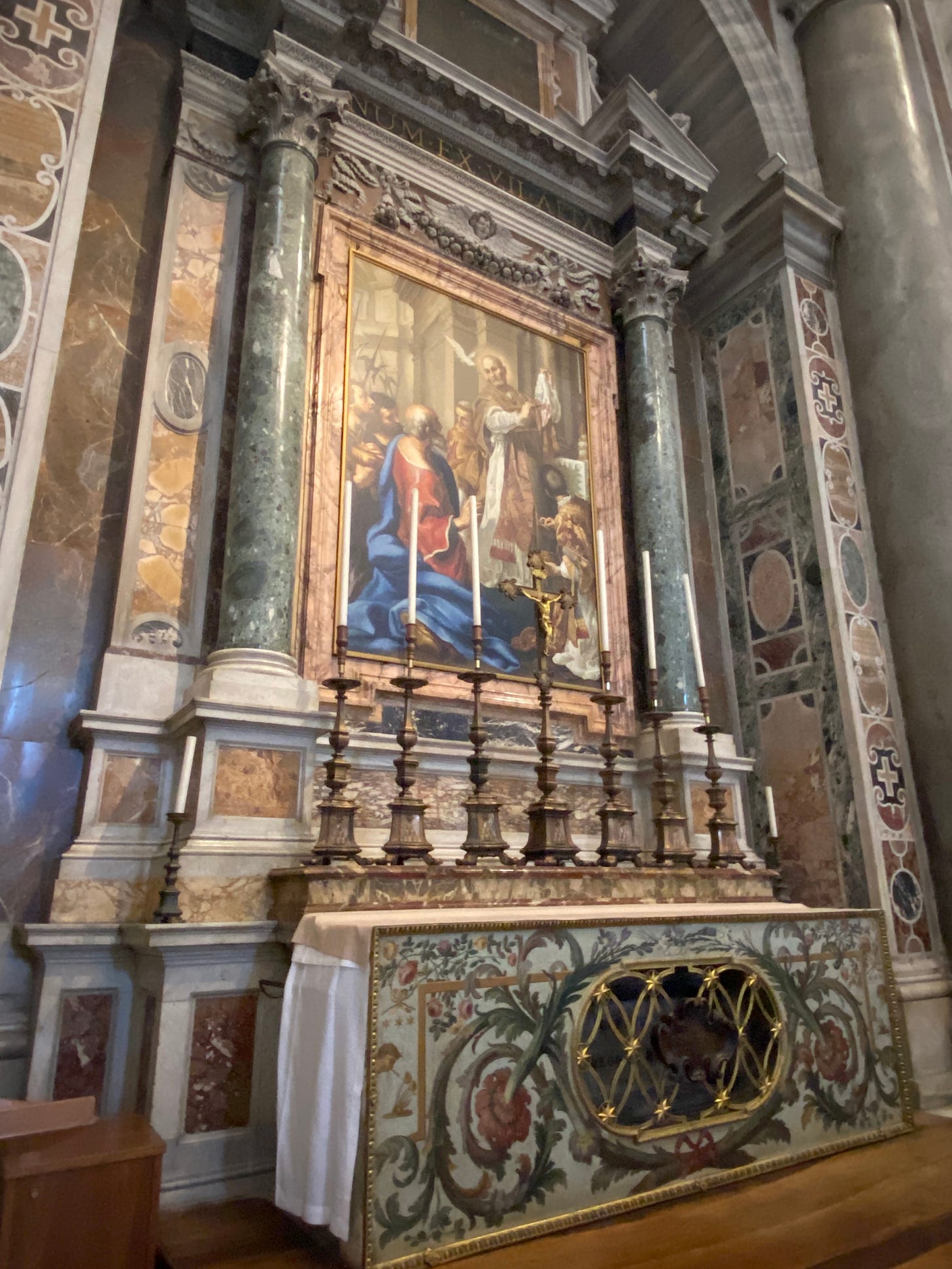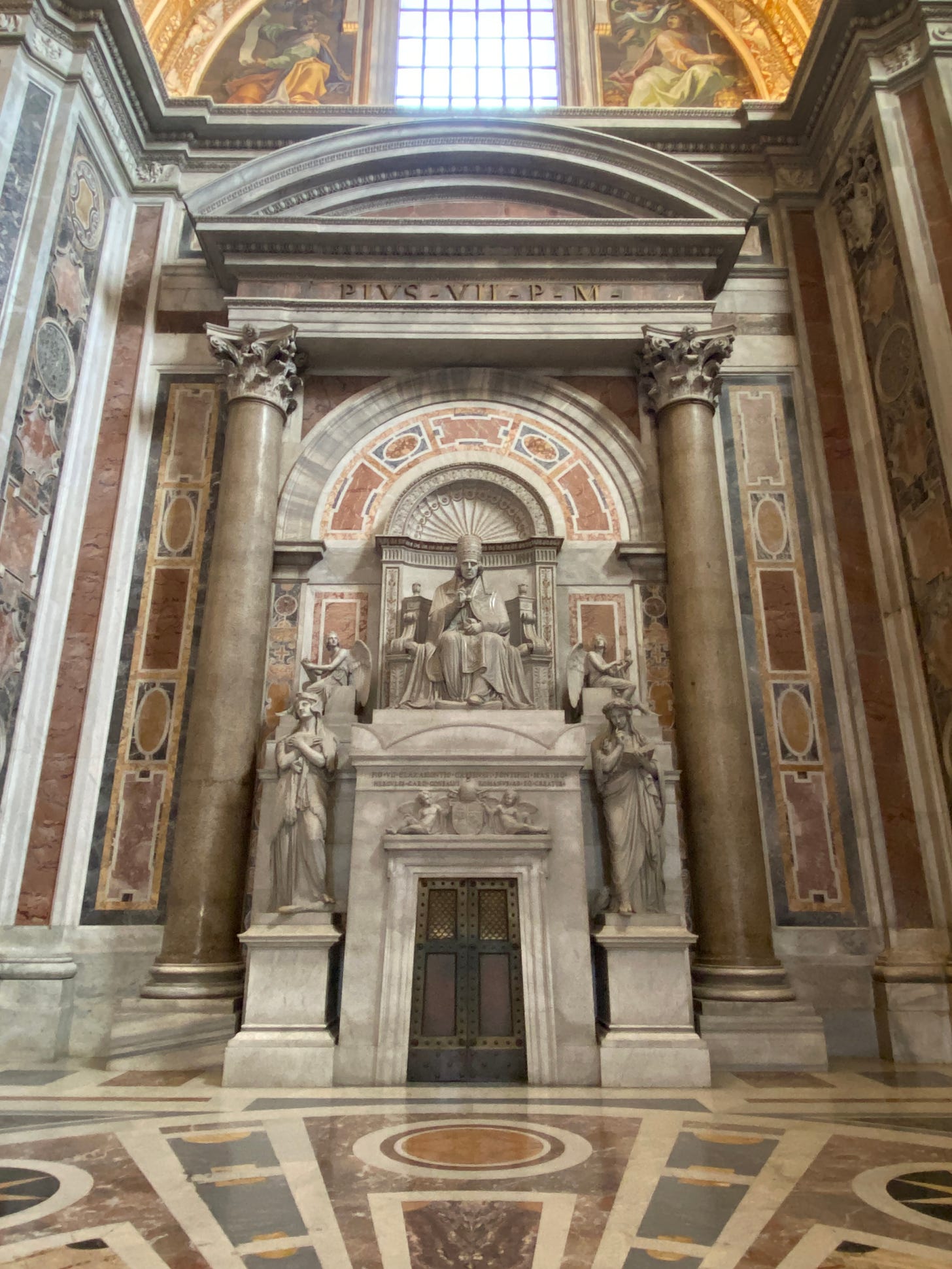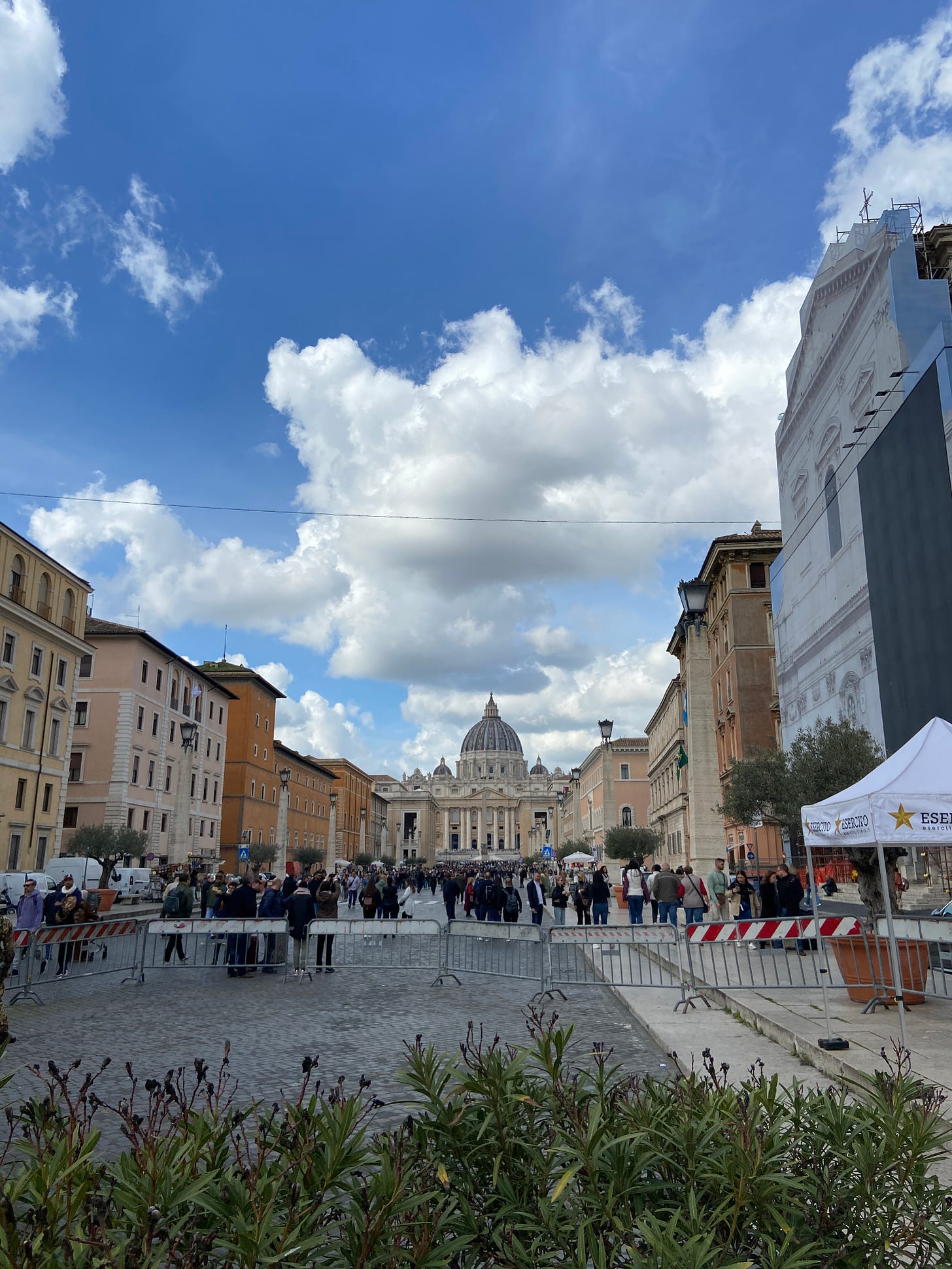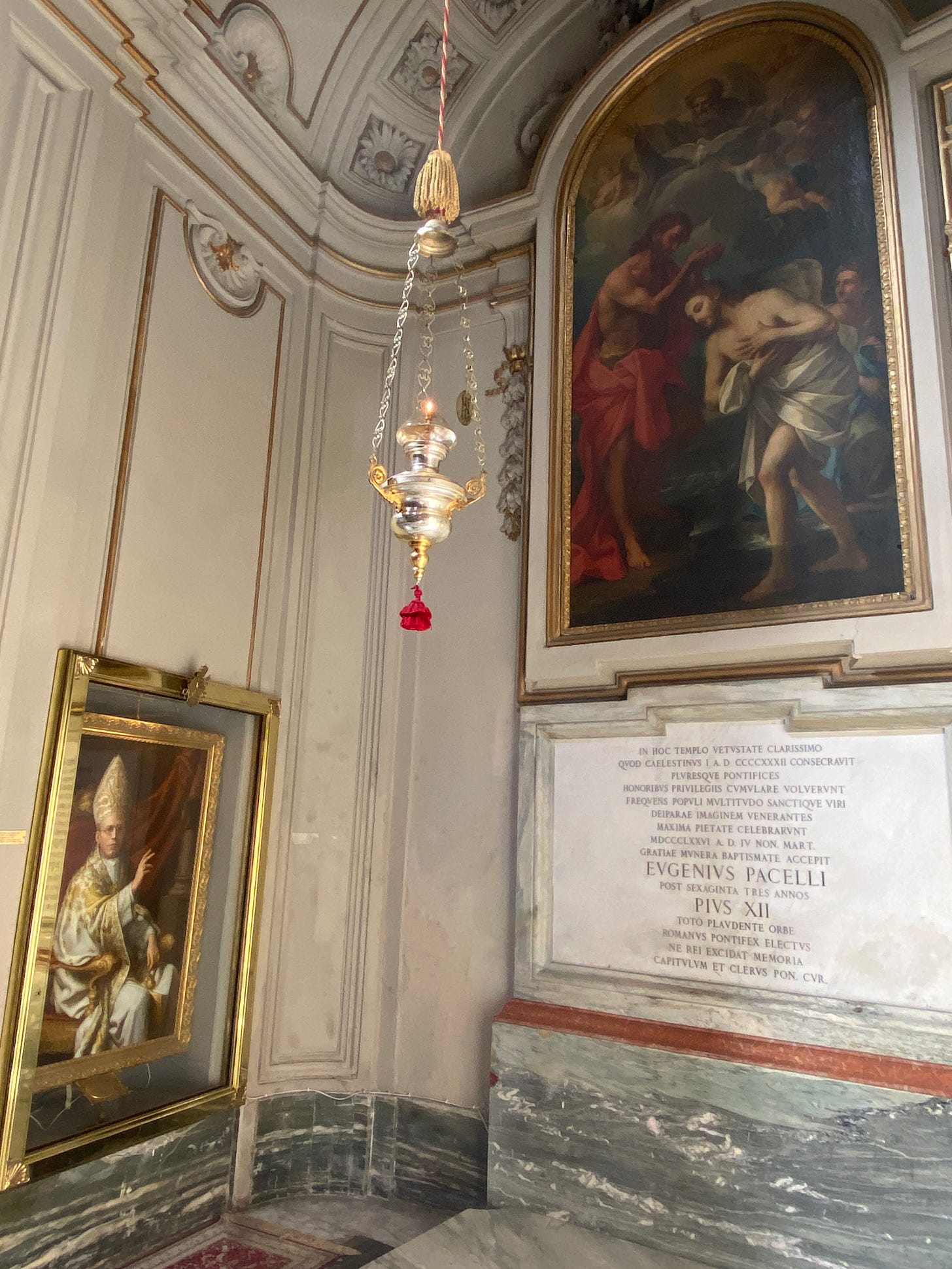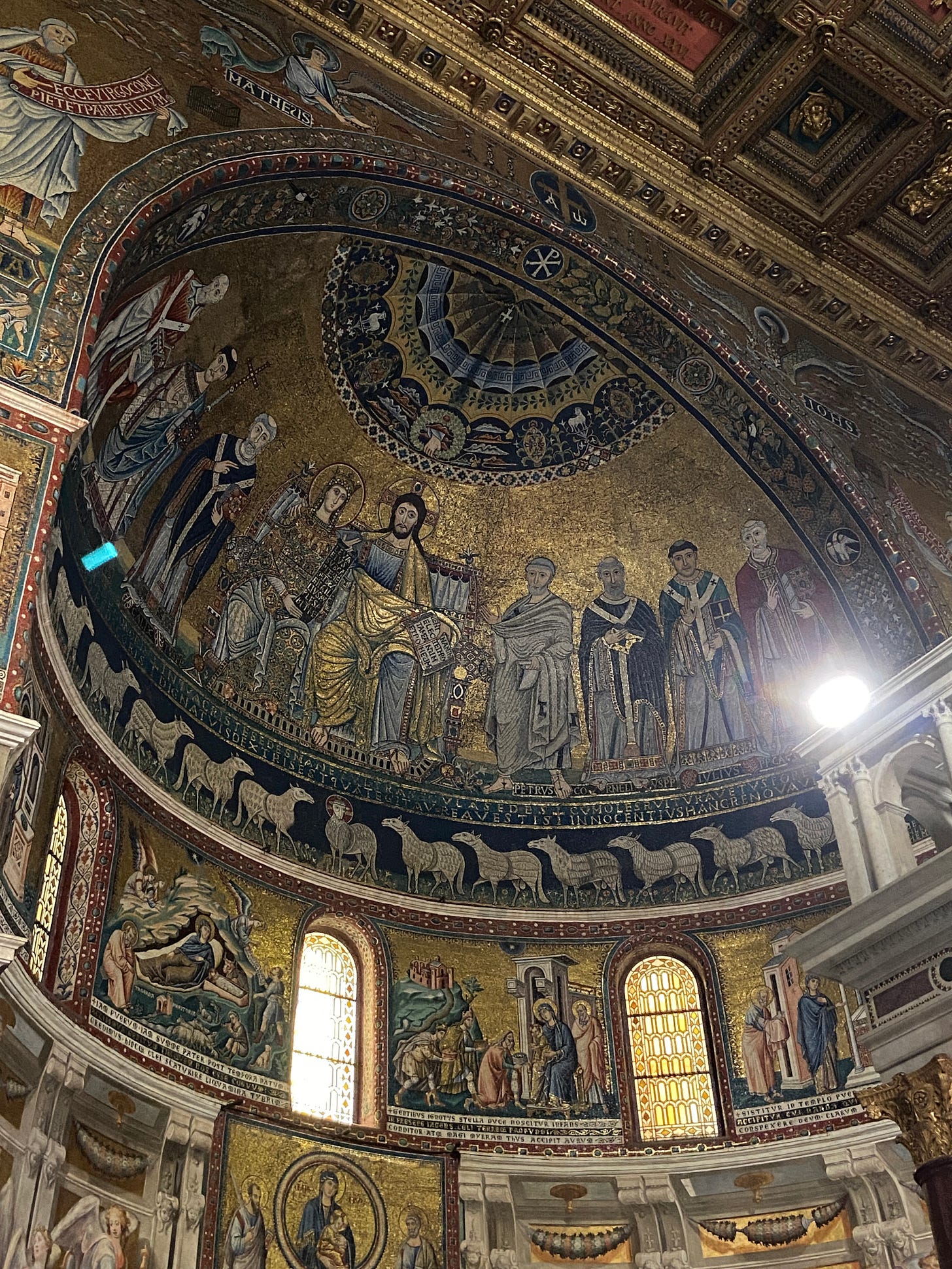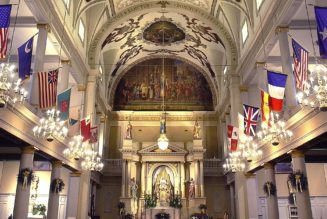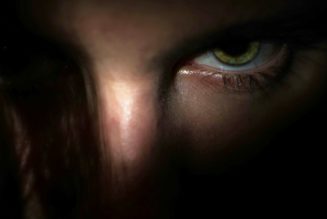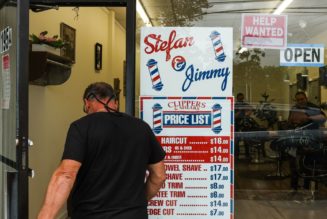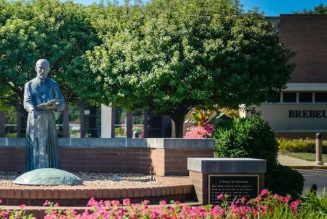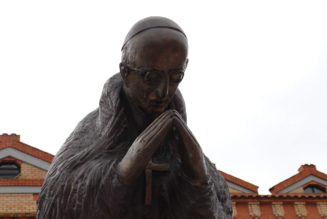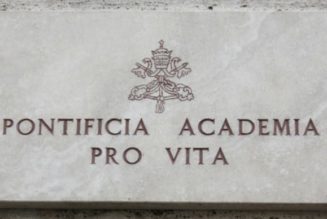Considering my posts have gotten later and later each day of this trip and I’m flying home bright and early in the morning, here’s another double feature from Thursday and Friday in Rome:
Started the day with another station church Mass, this time at the Basilica of Ss. Cosmas & Damian, which has a famous apse mosaic depicting the two saints and the risen Christ, along with the pope who commissioned it on the far left: Pope St. Felix IV
Then Fr. Ned and I had the opportunity to meet up with a dear college classmate who now serves as a religious sister with the Servants of the Pierced Hearts, and she gave us a tour of this gorgeous chapel that once belonged to the Italian Royal Family, the House of Savoy.
The rest of the day we dedicated to St. Paul, traveling via metro first to the Basilica of St. Paul Outside the Walls, one of Rome’s most ancient basilicas and the place which houses medallions of every pope of the Roman Catholic Church (along with a few other characters) dating back to St. Peter himself
The medallions line the walls above the cornices in the nave, both aisles, and the transepts behind the main altar, and they each stand 4 feet, 7 inches tall!
This is the original apse mosaic from the time of Pope Honorius III in the 13th Century. The artist wanted to include him alongside the apostles in the mosaic, but the pope refused unless he was as small as Jesus’ toe – so the artist did just that (zoom in).
Next we went to the Abbazia Tre Fontane, the abbey and church built on the site where St. Paul was famously martyred by the Roman government via beheading. According to tradition, Paul’s head rolled to three separate spots, immediately after which a spring miraculously began flowing from the spot.
The church at the end of the picture below has a small chapel built over each of the three places, and the water flowed continuously until 1950, when it was closed off due to contamination.
Today was my last full day in the Eternal City, so I spent much of the morning back in St. Peter’s and wandering around near the Vatican.
Thankfully we had an opportunity to walk up closer to the tomb of Pope St. Leo the Great last week, because it was closed off due to construction this morning. Even still, it was good even to visit his relics and offer a prayer from behind the ropes.
The tomb of St. Gregory the Great depicts, as in every image of him, a dove whispering in his ear, hearkening to his great wisdom in writing and preaching, as well as several stories of a physical dove miraculously appearing near him at times.
Another of my personal favorites – the tomb of Servant of God Pope Pius VII, who was for one long stretch during his 20-year papacy imprisoned by Napoleon Bonaparte.
One last look at St. Peter’s as I exited the square.
In wandering around Rome waiting for Fr. Ned to finish up classes for the day, I happened to find the church in which Venerable Pope Pius XII was baptized – Ss. Celso e Giuliano – commemorated by the white plaque beneath the painting in what used to be the church’s baptistry.
My last church visit of the trip – the Church of the Immaculate Conception, home of the Capuchin Friars. In the apse mosaic is depicted three early sainted popes: St. Callixtus I, St. Julius I, and St. Cornelius.
And finally, the original version of perhaps the most famous painting of St. Michael the Archangel resides in this same church – Guido Reni was the artist, and it in fact was a bit of a political statement in the Renaissance climate of the day. The brother of Pope Urban VIII, a cardinal at the time, knew that the pope’s arch-nemesis was Cardinal Giovanni Battista Pamphilj, and had Reni use the latter’s face as the likeness for the devil.
Even more interesting? Pamphilj followed immediately after Urban VIII on the papal throne – he’s now known to us as Pope Innocent X.
Thank you all for following along on my first visit to Rome! We’ll be back to publishing Today in Papal History posts and Popecast episodes soon.
